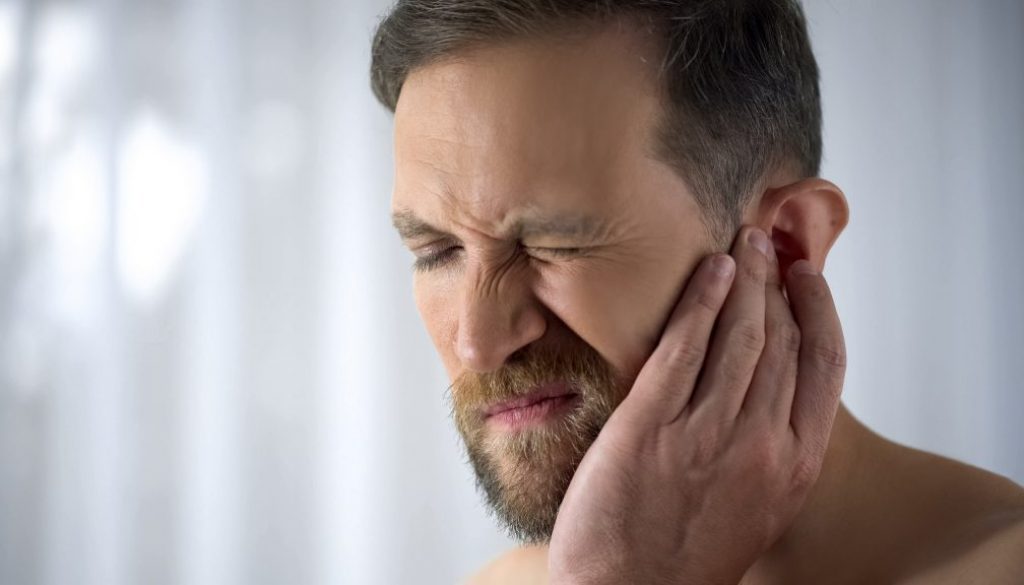What Causes Ringing In My Ears?
For some, it is a vague hiss that persists throughout the day. For others, it’s an annoying, high-pitched whistle. In certain cases, it may even be a short sound similar to music. It can even resemble crickets or ocean waves.
But in all cases, it doesn’t stop. It may cease temporarily, but it comes back.
Ringing in the ears, or tinnitus, affects thousands of Americans, transforming their everyday lives. There is no cure for tinnitus, however, there are treatments that our ear, nose and throat specialists provide that can significantly relieve symptoms.
What is Tinnitus?
Ringing in the ears is called tinnitus. Tinnitus isn’t always a “ring.” It can also be different sounds, such as hissing, whistling or buzzing.
Tinnitus is not from an external source. That means it is a subjective noise. Therefore, if you have tinnitus, and have a ringing in your ears, you will be the only one who hears it.
What Does Tinnitus Sound Like?
The American Tinnitus Association provides this short sound clip of what tinnitus may sound like.
Warning: be sure your computer volume is low when you play this clip because it emits a high-pitched tone.
Now imagine having to live with a sound like that in your ear. All the time.
It can be exhausting and frustrating. That’s one reason why we wanted to provide information you need to get help and seek tinnitus treatment.
What Causes Ringing in the Ears?
Many believe that tinnitus itself is a disease. It isn’t. Instead, it’s a sign that there is an underlying health problem. Usually, these issues center around nerve damage to the ear and auditory symptoms. It’s also associated with hearing loss.
Following are some of the more common conditions that can contribute to tinnitus:
- Hearing loss, either caused by age or long-term exposure to loud noises
- Blockages in the middle ear
- Congestion
- Neck or head injury
- TMJ, a type of jaw joint disorder
- Sinus pressure
- Rapid change in air pressure (such as when scuba diving)
- Traumatic brain injuries
- Tumors
In addition, there is a class of medications called ototoxic drugs. Tinnitus can be a side-effect of these medications. Fortunately, in most cases, the tinnitus goes away once the medication is stopped.
In some cases, doctors are unable to find the cause of tinnitus. However, they can take steps to help diminish the effect tinnitus has on your daily life.
What Is Used for Tinnitus Treatment?
The key to successful treatment is to address the underlying cause of the tinnitus In cases where no one cause can be determined, there are other strategies for how to stop ringing in the ears.
Some of these include:
Noise suppression
Sometimes, utilizing a white noise machine can help. Anything that creates a non-distracting, relaxing sound, such as fans, humidifiers and air conditioners, can help cover internal noise.
Hearing Aids
Because hearing loss is one of the main causes of tinnitus, a hearing aid can not only resolve your hearing problems but will likely go a long way toward treating your tinnitus as well.
Masking Devices
These are similar to hearing aids. They are worn in the ear and produce a soft, low-level white noise that helps suppress the ringing, buzzing or other sounds caused by tinnitus
Medications
There is no cure for tinnitus, so medication won’t completely treat the condition. However, they can reduce the severity of it. Certain antidepressants and medications like Xanax can help, but are often only used in the most severe cases.
If You Have Tinnitus, You’re Not Alone
Tinnitus dramatically transforms your quality of life, and it affects roughly 50 million Americans. If you are experiencing ringing in your ears, you’re not alone. You might want to review some of the information and support resources available through the American Tinnitus Association.
What Causes Ringing in My Ears? We Can Help
Our ear, nose and throat specialists ensure that you get the care you need. Not only have they helped patients overcome and cope with the frustration and anxiety of tinnitus, but they have treated countless other conditions, including tumors of the head and neck.
In addition to routine procedures such as tonsil and adenoid removal, our surgeons also provide extensive facial plastic surgery to treat facial trauma. They help patients with:
- Voice problems
- Hearing loss
- Facial fractures
- Thyroid issues
- Swallowing problems
- Ear infections
- Ruptured eardrums
- Meniere’s disease
We’re always ready to help you. Please visit CMC Ear, Nose and Throat for more information or to schedule an appointment.

